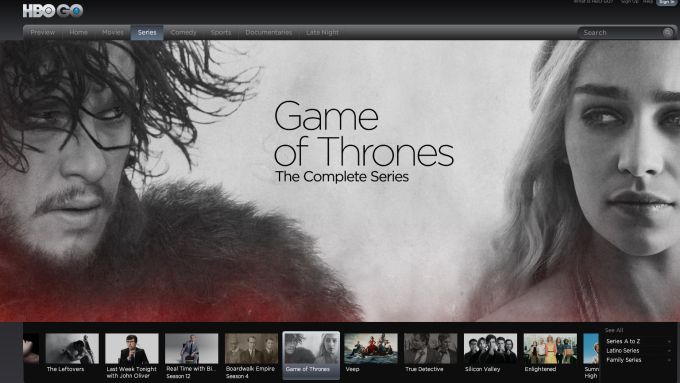
HBO will launch a streaming-only membership for its content, allowing it to compete with companies like Netflix or Amazon.
The new service will allow consumers to cut the cord on cable without being forced to “borrow” a password, as some do now, to watch the company’s programming.
HBO’s standalone streaming service will launch in the United States in 2015.
Its aim is to serve the 10 million, and growing, “broadband only” homes, HBO boss Richard Plepler announced.
“That is a large and growing opportunity that should no longer be left untapped. It is time to remove all barriers to those who want HBO,” Richard Plepler said.
The news was met with glee on social media, where “cord cutters” celebrated what some called the beginning of the end of bundled TV services. “Down with Cable!” and “Cord cutters, rejoice!” were the trending headlines greeting the news.
Traditionally, HBO, home to shows like Game of Thrones, Girls and True Detective, came as a premium option in a package of bundled cable TV channels, administered by a cable provider.
At a time when people are increasingly watching programs streamed over the internet – whether on their phones or their plasma screen monitors in their living rooms, many consumers have expressed frustration at paying for traditional cable, only to receive dozens of channels they don’t want along with premium brands like ESPN or HBO.

With the advent of Netflix and Amazon streaming services, more and more people are choosing to cut off cable altogether to save money, skip commercials and only watch what they want, when they want it.
Netflix CEO Ted Sarandos has gone on record saying: “The goal is to become HBO faster than HBO can become us.”
While HBO currently offers a streaming service, HBO Go, it is only available to customers who already pay for HBO as part of a cable bundle.
It’s not uncommon for people to “borrow” a friend or family member’s HBO Go password to watch shows from home, and pressure has been on the subscription channel to provide the services as a stand-alone option.
Until today, analysts speculated that the company was unwilling to alienate cable companies who not only provided a large bulk of revenue, but dealt with HBO’s customer-facing issues like technical support and billing.
The company has tried a similar project in Scandinavia, he says, and earlier this year partnered with Amazon to provide HBO content as part of the online retailer’s streaming service.
Both moves allowed the company to evaluate the appetite for and effectiveness of a stand-alone service.
HBO did not provide details like how much the service would cost or how it would differ, if at all, from HBO Go.
[youtube J7SzVTNhI_E 650]